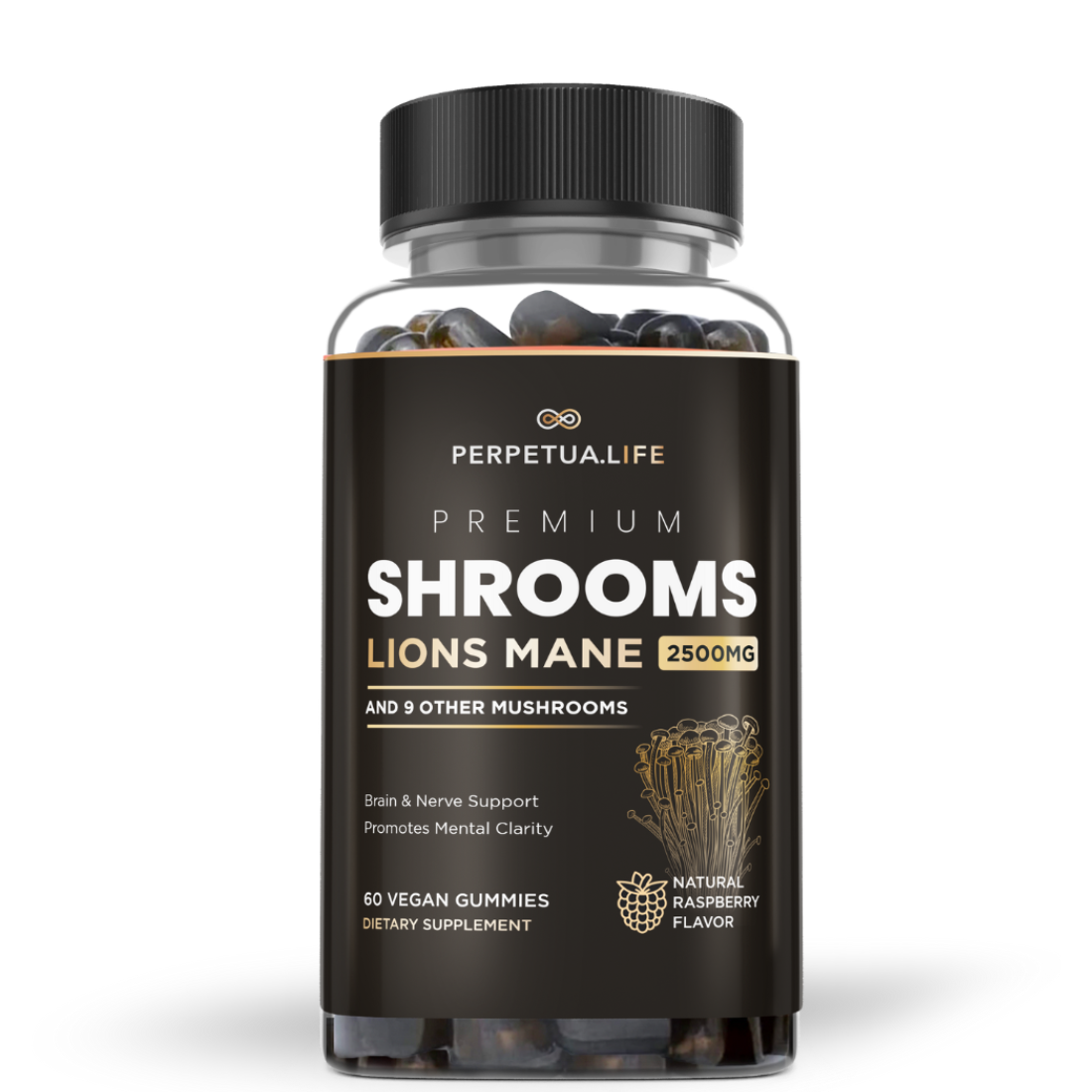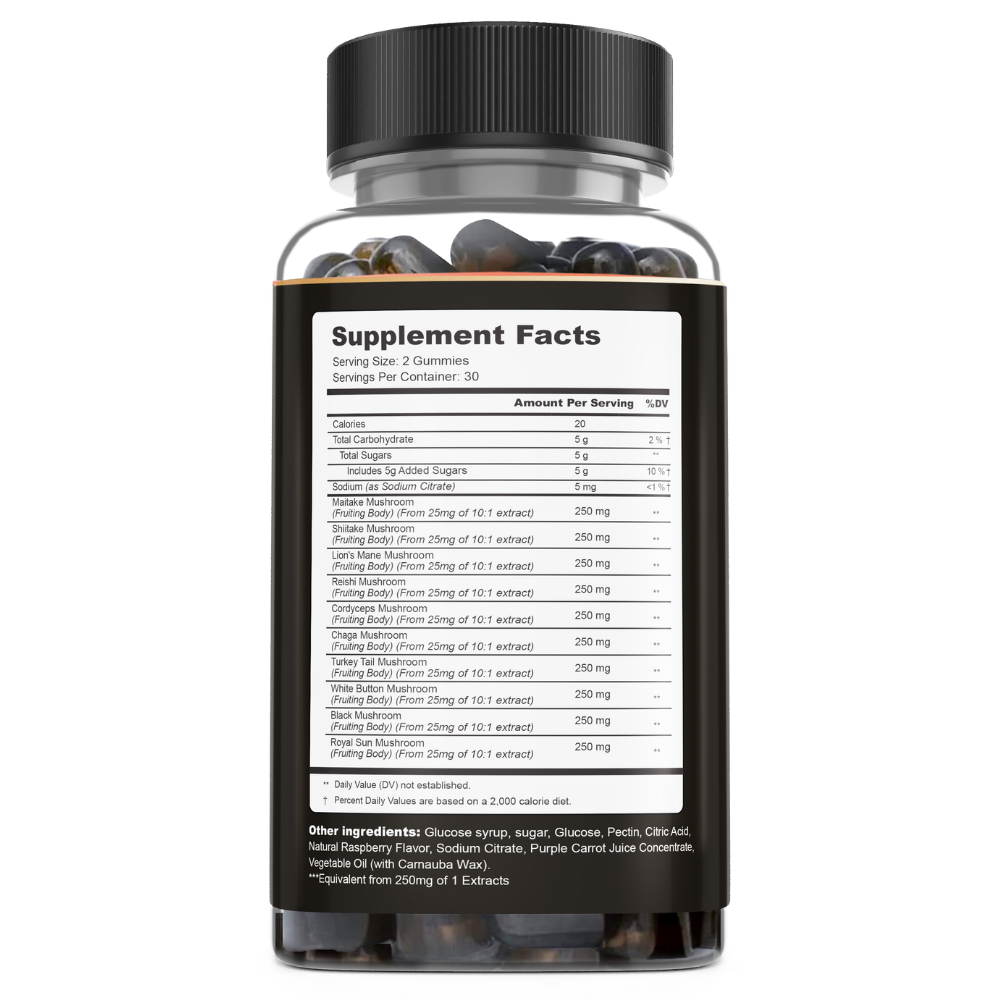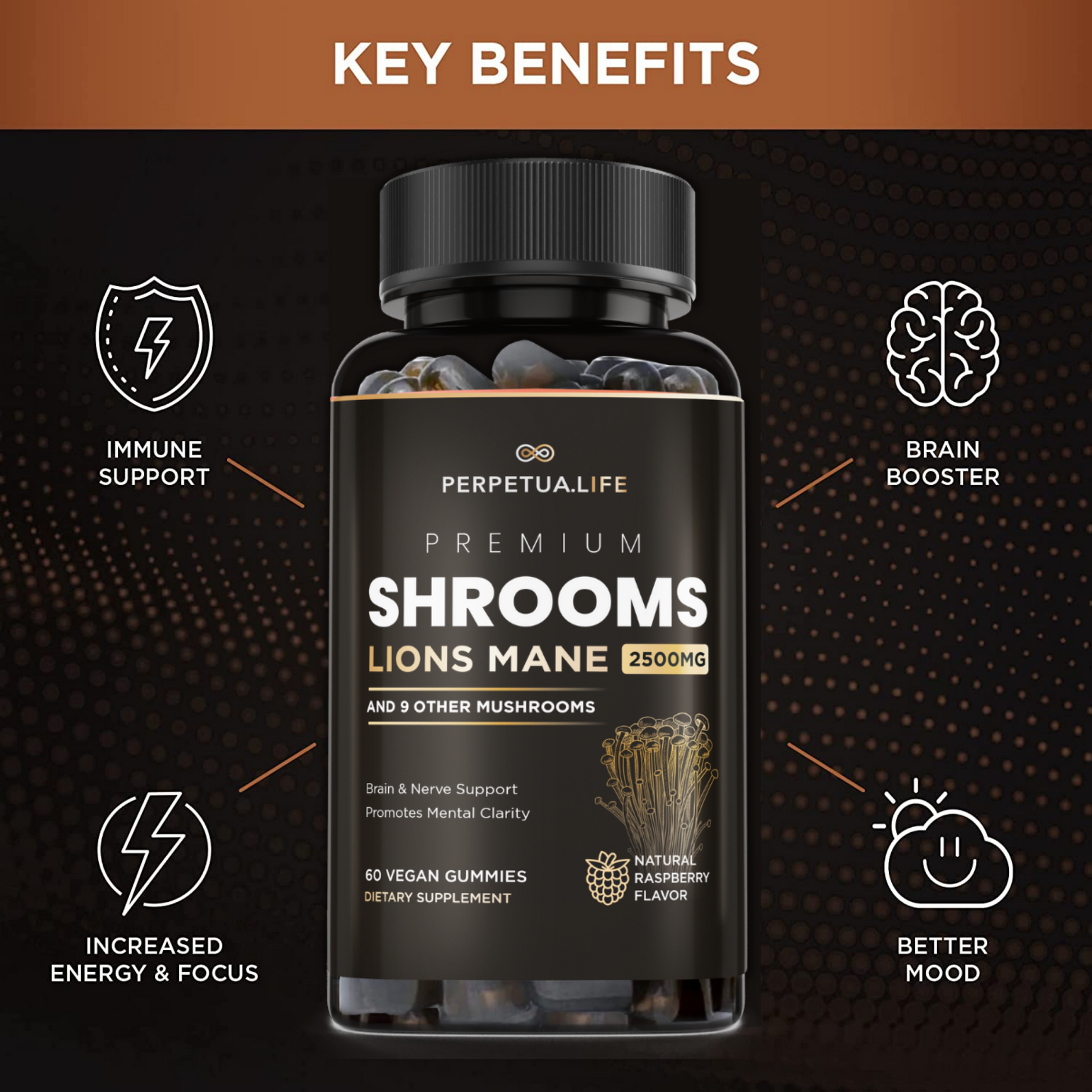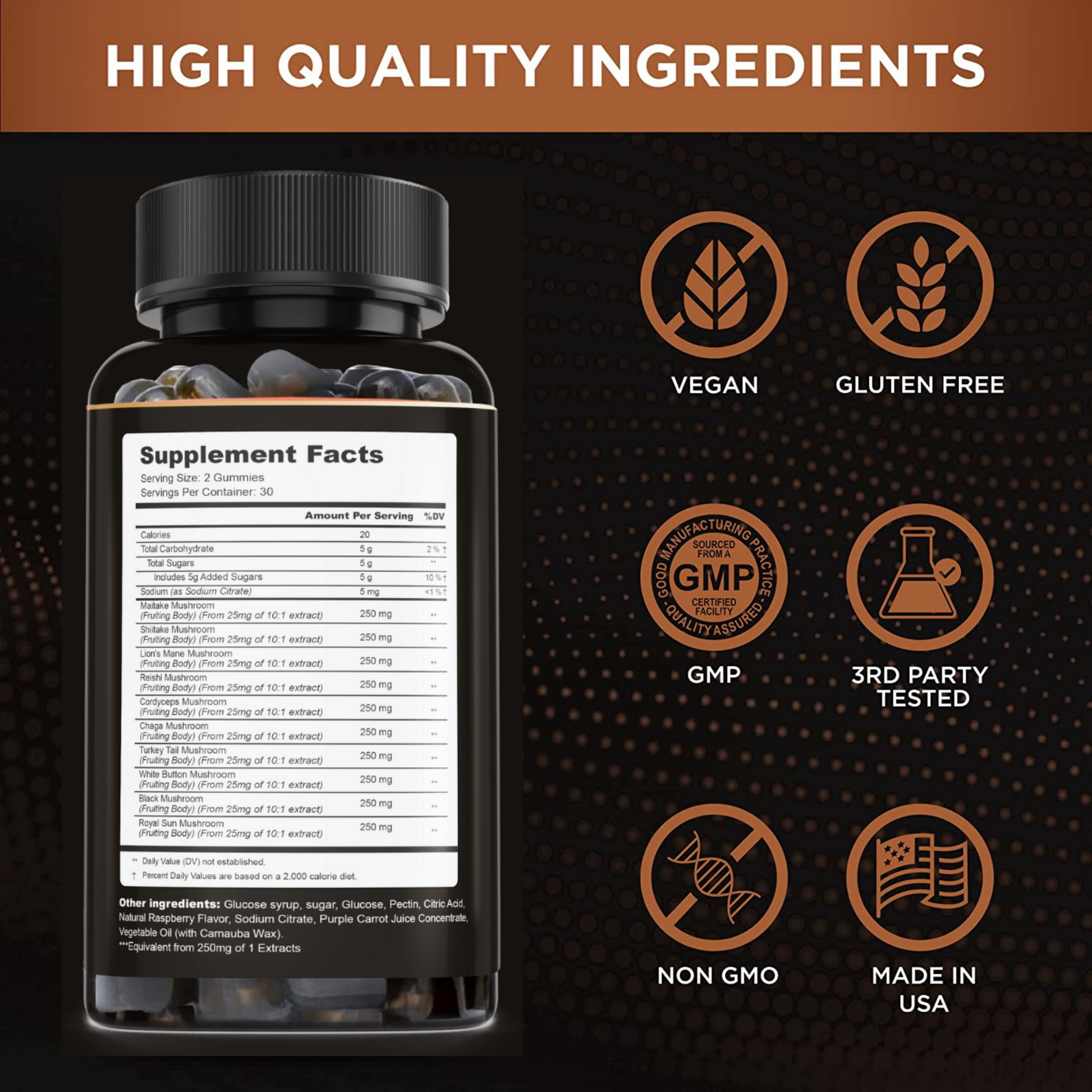1
/
의
4
Perpetua.Life
Lion's Mane Gummies - w Turkey Tail and 9 other Premium Mushrooms.
Lion's Mane Gummies - w Turkey Tail and 9 other Premium Mushrooms.
정가
$24.99 USD
정가
$49.00 USD
할인가
$24.99 USD
단가
/
단위
배송료는 결제 시 계산됩니다.
픽업 사용 가능 여부를 로드할 수 없습니다.
"Amazing"
Rated 4.4/5 on

INGREDIENTS
Harness the source of one of natures most powerful, and magical creations: Mushrooms. Don't settle for just 1 or 2 mushrooms when you can get 10 all in 1 product.

*Gummies are Vegan, Organic, Non-GMO, and Gluten-Free.
TESTING
SHROOMS is tested yearly by a 3rd party lab, and results will be published here shortly.
DISCOUNTS
Don’t want to subscribe to monthly delivery? Now you have the option of purchasing a full years worth of SHROOMS (12 bottles), at a 30% discount.
- Just add SHROOMS to your cart, and adjust the quantity to 12.
- When you checkout, a 30% discount will be applied automatically to your order.
Bundle Purchase Options:
Share
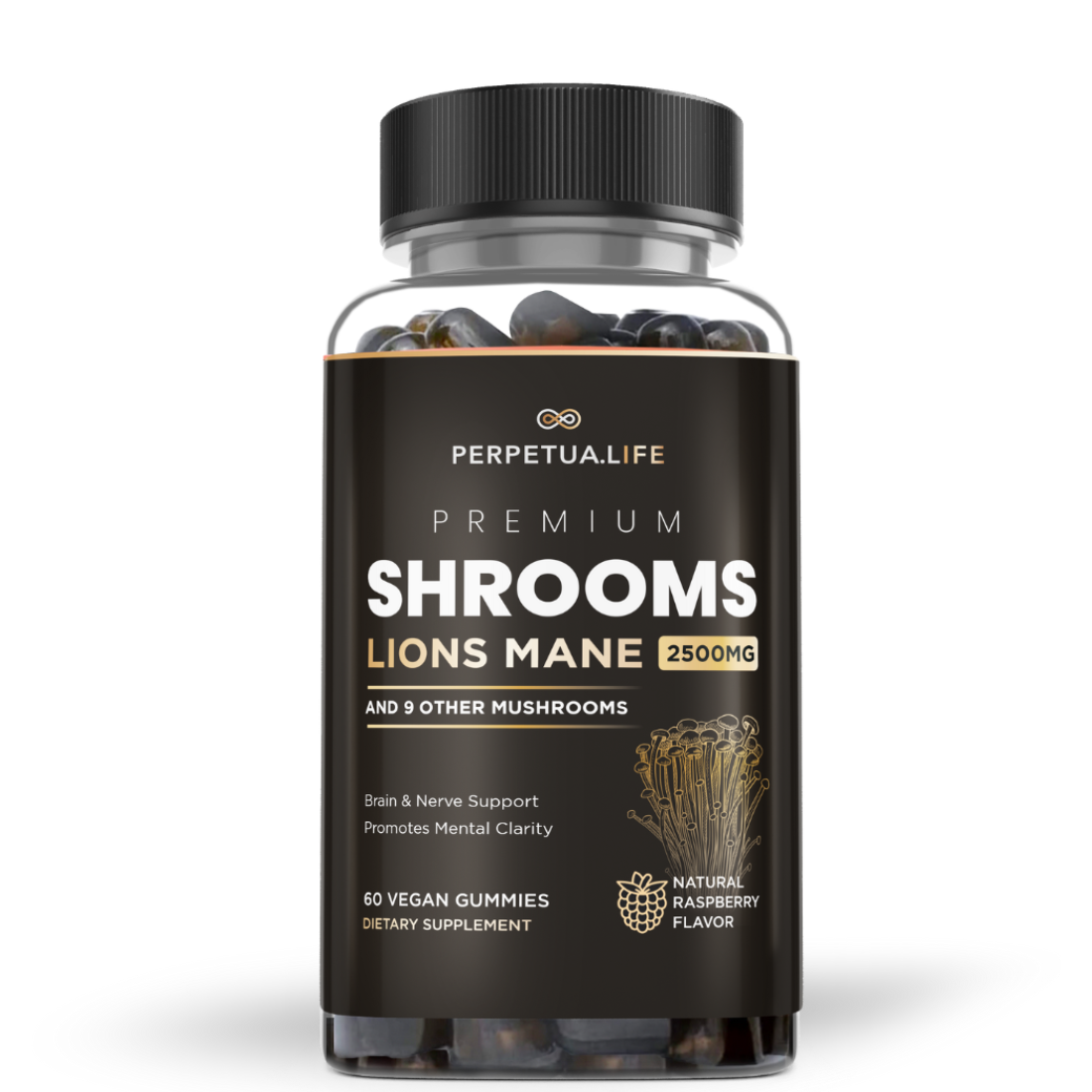
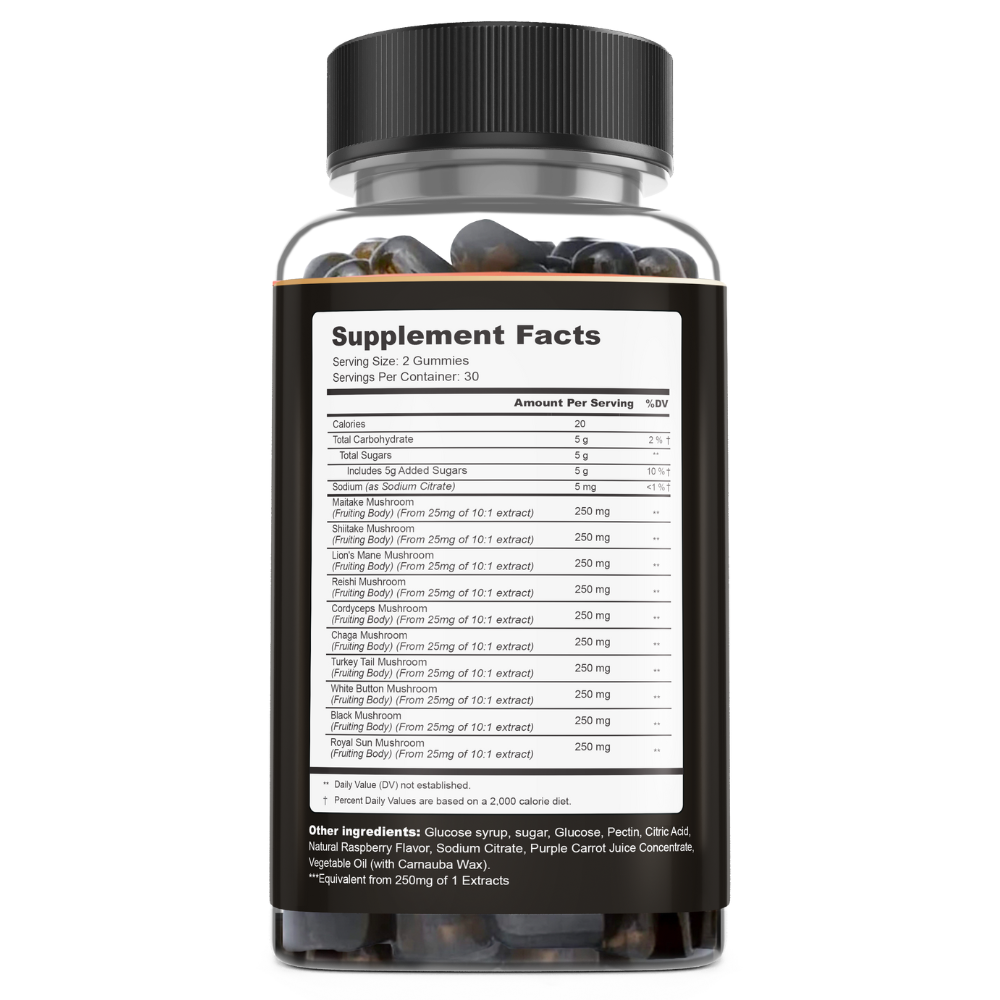
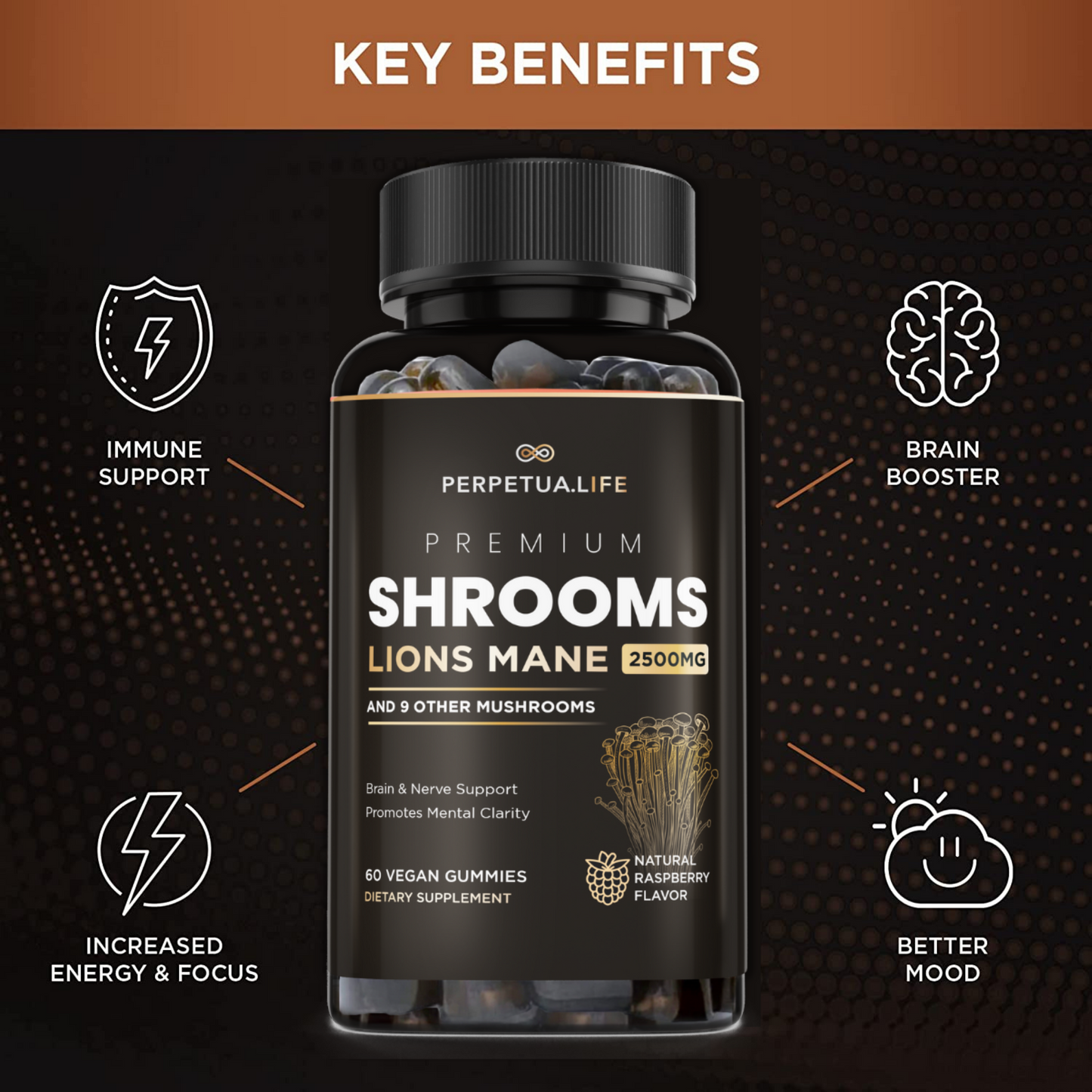
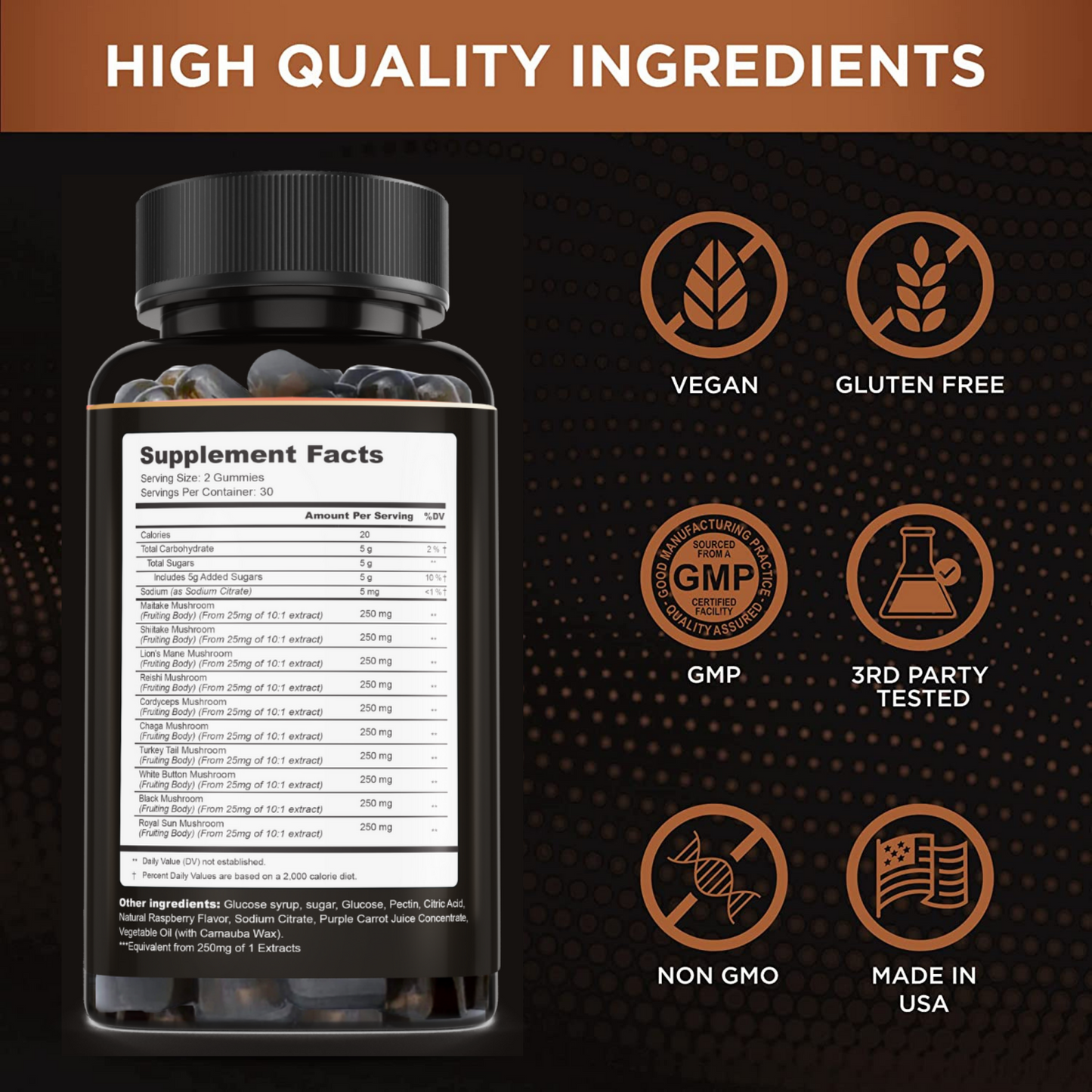
AEON Longevity Complex is a synergistic blend of 11 longevity ingredients that target the damages of aging.
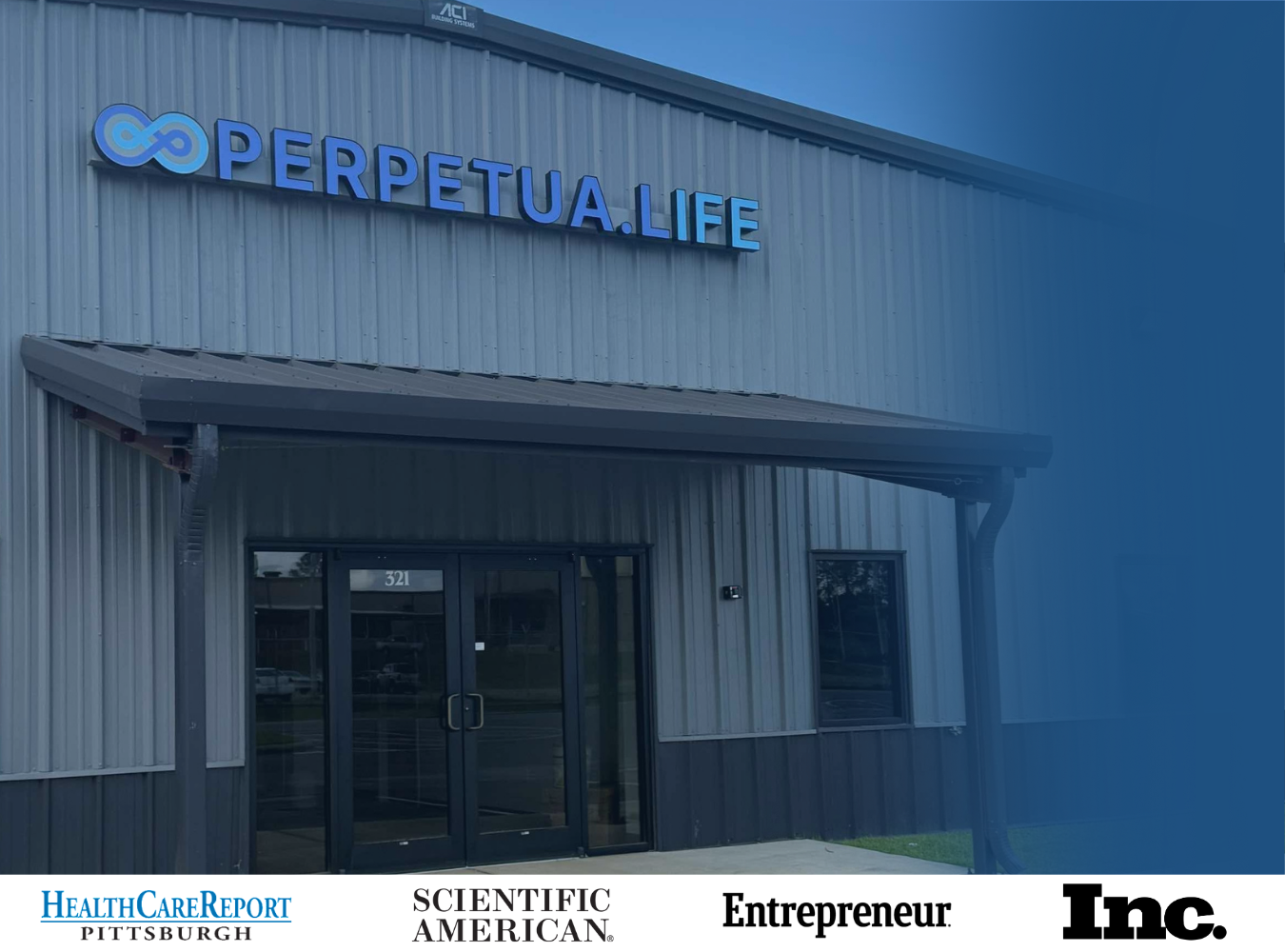
The Ultimate Evolution in Longevity.
Perpetua Life Biotech is a U.S. based research and development company specializing in life extension and gerontology.
We're a dedicated group of professionals that have made it our life's mission to ensure you can live a longer and healthier life.
A recent study has shown boosting your NAD+ levels, and supplementing your diet with senolytic compounds like Resveratrol, Fisetin, and Quercetin may reverse age-related decline, and extend human lifespan.
AEON combines NAD+ precursors like NMИ and NR, with Resveratrol, Quercetin, Fisetin, AND 6 other age defying compounds in one affordable product!
We're one of the very few companies who also regularly 3rd party test our products for Heavy Metal contaminants like Lead, Mercury, Cadmium, and Arsenic to make sure you get a safe, and effective product each and every time!
You can view the results HERE.
FAQ:
When and How should I take AEON Black?
For best absorption we advise taking 2 capsules of AEON Black a day with a meal. The bottle includes 60 capsules so it should last a full month.
What makes AEON better than other brands?
AEON combines more longevity ingredients than any other product into one easy to swallow pill. The formula is inspired by Dr. Sinclair's research and his book "Lifespan."
We also test our product for heavy metals which is something a lot of other companies don't do because they source their ingredients from countries like China where those levels are very high.
What are your subscription terms?
You can cancel your subscription at any time by using the link "manage subscription" at the top & bottom of this page. Alternatively, you can send us an email at support@perpetua.life and we will be happy to cancel it for you.
What are the main benefits of taking AEON?
AEON Longevity Complex is your all-in-one solution, replacing the need for 11+ supplements, targeting eight key areas of health: Energy, Immunity, Cognitive Function, Digestion, Cardiovascular Health, Hydration, Nourishment, and Cellular Renewal.
AEON makes it easier to live a healthier, more vibrant life.
Does AEON interact with any other medications?
AEON is vegan, non-gmo, and free from gluten, dairy, soy, and peanuts.
We've designed our product to be taken by individuals of all ages, and walks of life, including those taking blood thinners, statins, ACE inhibitors, and ARBs
How long until I start noticing results?
Users have reported everything from grey hair turning back to its original color, skin looking more vibrant, better sleep, more energy, and an overall improved sense of wellbeing within 2-3 months of consistent use.
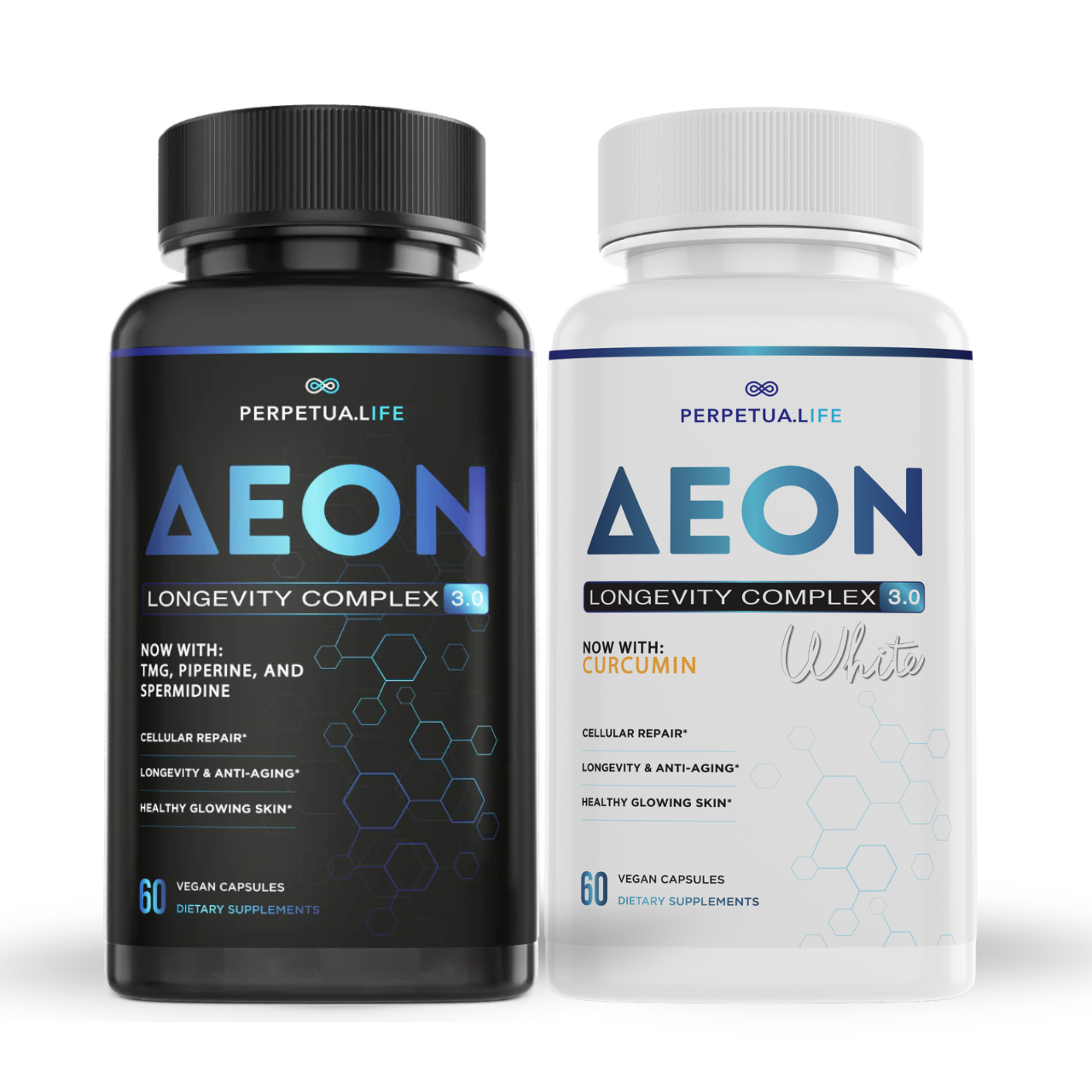
AEON Black & White Bundle
Looking to take your longevity stack to the next level? Then the AEON Black & White Bundle is for you!


